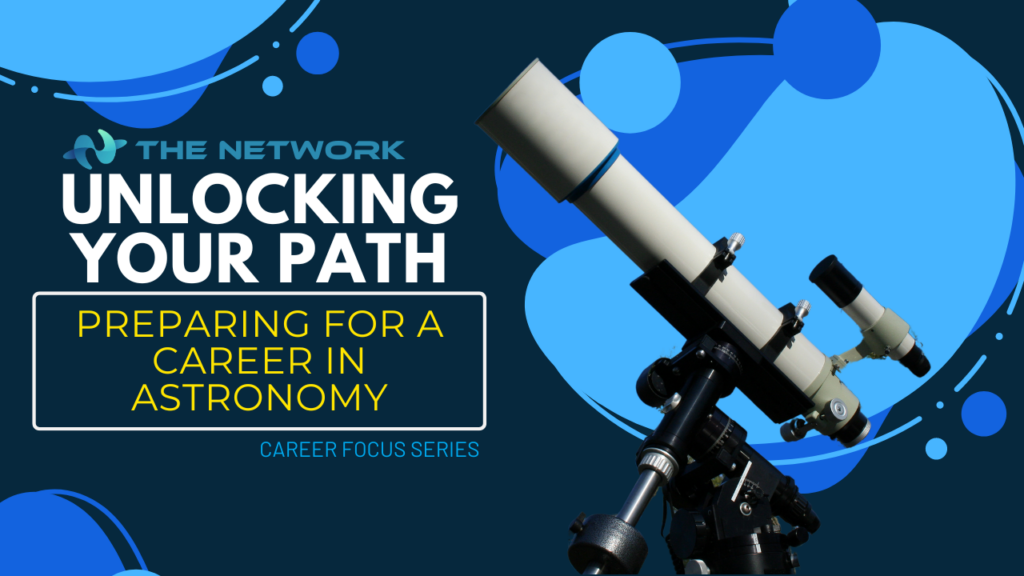Unlocking Your Path: Preparing for a Career in Astronomy

Astronomy, the study of celestial objects such as stars, planets, comets, and galaxies, has fascinated humanity for centuries. Peering into the depths of space, astronomers unlock the mysteries of the cosmos, inspiring wonder and curiosity in all who gaze upon the night sky. For those intrigued by the vast expanse beyond our world, pursuing a career in astronomy can be a rewarding and fulfilling journey. In this comprehensive guide, we will explore the steps to embark on this celestial path, from high school preparation to specialized careers and the impact of astronomy on our world.
The Highlights of a Career in Astronomy
Embarking on a career in astronomy offers a multitude of enriching experiences and opportunities. One of the highlights is the chance to explore the unknown, discovering new celestial phenomena and expanding humanity’s understanding of the universe. Astronomers also have the privilege of working with cutting-edge technology, from advanced telescopes to powerful computational tools, pushing the boundaries of scientific exploration. Additionally, careers in astronomy often involve collaboration with international teams, fostering a global community of researchers united in the quest for knowledge.
Top Jobs in Astronomy and Sub-Streams
Within the field of astronomy, various career paths beckon to those with a passion for the cosmos. Some of the top jobs include:
- Research Astronomer: Conducting observations, analyzing data, and publishing findings in peer-reviewed journals.
- Astrophysicist: Studying the physical properties and processes of celestial objects, such as stellar evolution and black holes.
- Planetary Scientist: Investigating planets, moons, and other planetary bodies to understand their composition, geology, and potential for life.
- Observatory Director: Overseeing the operations of astronomical observatories, managing staff, and coordinating research projects.
- Science Communicator: Sharing discoveries with the public through writing, teaching, and outreach initiatives.
Skills and Subjects Essential for High School Students
For high school students aspiring to a career in astronomy, a strong foundation in mathematics, physics, and computer science is essential. Courses in calculus, algebra, and geometry provide the mathematical framework needed for advanced astronomical calculations. Physics courses cover fundamental principles such as mechanics, electromagnetism, and thermodynamics, which form the basis of astrophysical theories. Additionally, developing proficiency in programming languages like Python enables students to analyze astronomical data and simulate complex phenomena.
Majors and Internships in University
Upon entering university, aspiring astronomers can pursue degrees in astronomy, astrophysics, physics, or related fields. Participating in research projects and internships provides valuable hands-on experience and exposes students to the rigors of scientific inquiry. Majors may specialize in areas such as observational astronomy, theoretical astrophysics, or planetary science, tailoring their education to align with their interests and career goals.
Specialization Options in the Real World
As astronomers progress in their careers, they may choose to specialize in specific areas of study. Some common specializations include:
- Exoplanet Research
- Cosmology and Dark Matter Studies
- Galactic Astronomy and Star Formation
- Astrobiology and the Search for Extraterrestrial Life
- Space Instrumentation and Technology Development
Why Pursue a Career in Astronomy?
The allure of astronomy lies not only in its intellectual challenges but also in its profound impact on society. By unraveling the mysteries of the cosmos, astronomers contribute to humanity’s collective knowledge and inspire future generations to dream of the stars. Furthermore, advancements in space exploration and technology driven by astronomical research have practical applications in fields such as telecommunications, navigation, and medicine, enriching our daily lives.
Sub-Streams Under Astronomy
Astronomy encompasses a diverse array of sub-disciplines, each offering unique insights into the universe:
- Astrophysics: Investigates the physical properties and behavior of celestial objects.
- Planetary Science: Focuses on the study of planets, moons, and other solar system bodies.
- Cosmology: Explores the origins, evolution, and structure of the universe as a whole.
- Astrobiology: Searches for signs of life beyond Earth and explores the conditions necessary for habitability.
- Astrochemistry: Examines the chemical composition of interstellar space and planetary atmospheres.
The Impact of Astronomy on the World
Astronomy has profoundly influenced human civilization throughout history, shaping our understanding of the cosmos and our place within it. From ancient cultures using celestial observations for navigation and timekeeping to modern space exploration missions probing the depths of space, astronomy continues to inspire awe and curiosity. Moreover, astronomical discoveries have led to technological innovations that benefit society, from satellite communications to medical imaging technologies.
Guidance for Parents
Parents play a crucial role in nurturing their children’s interest in astronomy and guiding them towards a career in the field. Encouraging curiosity, providing educational resources, and fostering a supportive learning environment can ignite a lifelong passion for astronomy. Additionally, parents can explore opportunities for their children to engage in hands-on activities, visit observatories, and participate in science clubs or competitions to further develop their interest and skills.
School or Homeschool Learning Ideas
- Stargazing Night: Organize a stargazing event for students, providing telescopes and guides to identify celestial objects.
- Astrophotography Workshop: Teach students the basics of astrophotography, capturing images of the night sky using DSLR cameras or smartphones.
- Planetarium Visit: Arrange a field trip to a local planetarium for an immersive experience exploring the wonders of the universe.
- Space Exploration Debate: Hold a classroom debate on the future of space exploration, discussing the benefits and challenges of manned missions to Mars.
- Exoplanet Detective: Task students with researching and presenting findings on recently discovered exoplanets, highlighting their unique characteristics and potential for habitability.
What Our Children Need to Know
- The Scale of the Universe: Help children grasp the vastness of the cosmos by comparing the sizes and distances of celestial objects, from planets to galaxies.
- Scientific Method: Encourage critical thinking and inquiry-based learning by guiding children through the scientific method, from formulating hypotheses to conducting experiments.
- Ethical Considerations: Discuss the ethical implications of space exploration and colonization, addressing issues such as environmental impact and planetary protection.
The Big Questions
- How do astronomers measure the age and distance of stars and galaxies?
- What are the potential implications of discovering extraterrestrial life?
- How do cultural beliefs and perspectives influence our understanding of the cosmos?
- What role does astronomy play in addressing global challenges such as climate change and resource depletion?
- How can we inspire the next generation of astronomers and space explorers?
Conclusion
Embarking on a career in astronomy offers a thrilling journey of discovery and exploration, from unraveling the mysteries of the cosmos to inspiring future generations. By nurturing curiosity, developing essential skills, and embracing the wonders of the universe, aspiring astronomers can unlock their path to a fulfilling and impactful career among the stars.





Responses